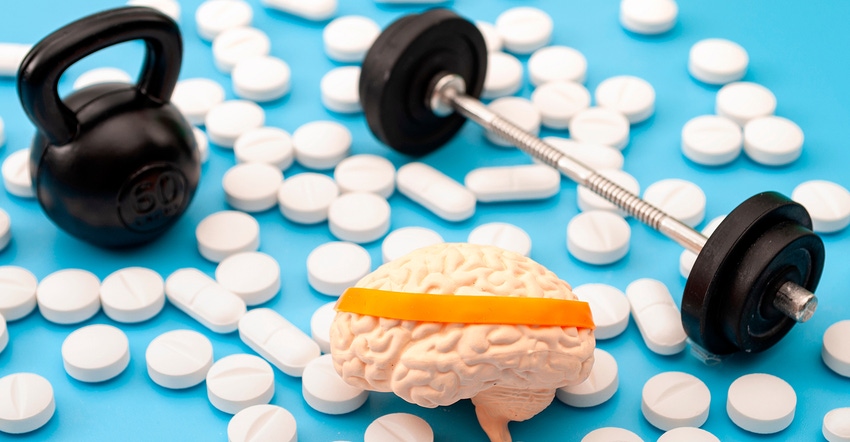The depths of concern the average consumer has about maintaining mental acuity and sharpness affirms the growth potential for cognitive health products.

Cognition and memory as a health concern is widespread across age cohorts. While commonplace health conditions like bone, heart, joint or even digestive health show drastically different levels of concern by age group (with consumers ages 60 and older overwhelmingly more concerned about these conditions than their children or grandchildren), cognitive health is the rare concern that cuts across cohorts, worrying consumers of all ages. In fact, consumers under the age of 45 were slightly more likely to respond that memory issues had a moderate or severe impact on their current health than consumers older than 45, at 60% and 57%, respectively, according to Euromonitor International. When asked about future concerns, again younger consumers reported similar but slightly higher rates than older consumers.
These responses underscore the depths of concern the average consumer has about maintaining mental acuity and sharpness and affirms the growth potential for cognitive health products. Younger professionals consistently respond that their daily lives consist of high stress levels and “constant pressure to get things done,” with Millennials, in particular, evincing high levels of professional stress. According to Euromonitor’s 2020 Lifestyle Survey, 45% of consumers between the ages of 20 and 39 feel constant pressure to perform, under the weight of lower career security than prior generations and the grind of constant demand for productivity and performance. Even younger school-aged consumers are already reporting increased need for mental support, as schools and entry jobs are more competitive each year.
When asked for their desired treatment approach, respondents to Euromonitor’s 2020 Health and Nutrition Survey reported trying a variety of behavioral options from exercise or physical activity, to resting or avoiding activity, to seeing a doctor or health care provider or a therapist. Some respondents also looked to natural remedies, prescription medicines, over-the-counter (OTC) medicines or alternative medicines/therapies for solutions to memory concerns. By far, respondents turned to vitamins or supplements as a mechanism to promote memory and stave off cognitive decline.
To read this article in its entirety, check out the Healthy aging: Cognitive health – digital magazine.
Matthew Oster is the head of consumer health at Euromonitor International, overseeing the industry’s research and leading a team of experts in 100 markets worldwide. He provides insight on consumer trends, key markets, the competitive landscape and growth opportunities in the global consumer health space to help organizations make strategic business decisions.
About the Author(s)
You May Also Like






.png?width=800&auto=webp&quality=80&disable=upscale)